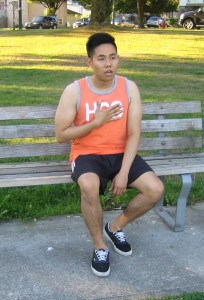Hypertrophic cardiomyopathy is a common hereditary ailment affecting the heart that can trigger various issues including heart failure and sudden death. Nevertheless, the seriousness of this condition varies for each individual and many can lead normal lives.
https://www.youtube.com/watch?v=8RnkKB8xvwA
What are the causes?
Hypertrophic cardiomyopathy is brought about by various genetic mutations that trigger a disorder in the growth of the heart muscle fibers.
The condition is passed on as an “autosomal dominant” trait. This simply means that if the abnormal gene is inherited from a single parent, the child will acquire the disease.
Nevertheless, in almost half of cases, the disorder is not acquired at all but arises as a spontaneous gene mutation. In such cases, the parents and their siblings are not at risk for the condition. On the other hand, this mutation can be passed on to the next generation.

What are the effects on the heart?
If an individual has hypertrophic cardiomyopathy, the muscular walls of the ventricles turn thick abnormally. This thickening causes the heart muscle to function erratically to a certain extent. In severe cases, the hypertrophy can progress to heart failure and heart arrhythmias.
Some of the serious heart issues that might occur include:
- Diastolic dysfunction – this refers to an abnormal rigidity of the ventricular muscle where the ventricles could not be filled with blood efficiently between every heartbeat.
- Left ventricular outflow obstruction – there is partial obstruction that makes it hard for the left ventricle to drive out blood during each heartbeat.
- Mitral regurgitation – in this condition, the mitral valve could not close normally once the left ventricle beats which allows the blood to move backwards into the left atrium.
- Heart muscle ischemia
- Sudden death – this is typically due to ventricular fibrillation or ventricular tachycardia
What are the signs?
The signs that might manifest if an individual has hypertrophic cardiomyopathy tend to vary. It is likely for individuals with the mild disease to have no symptoms at all. Nevertheless, if any of the heart issues stated earlier are present, some symptoms might be present.
The common symptoms experienced by individuals with hypertrophic cardiomyopathy include:
- Shortness of breath during physical activity
- Orthopnea
- Palpitations
- Paroxysmal nocturnal dyspnea
- Lightheadedness
- Fatigue
- Chest pain
- Swollen ankles
Loss of consciousness that occurs especially if during activity is a serious issue that might put one at high risk for sudden death. Once an episode of this occurs, it must be assessed right away by a doctor.
Management of hypertrophic cardiomyopathy
Hypertrophic cardiomyopathy could not be cured, but most cases can be treated medically to control the symptoms and improve the outcome. Nevertheless, the management of the condition can be complex and those who have symptoms must consult a doctor.
Calcium blockers and beta blockers can help lessen the rigidity in the dense heart muscle. Dehydration must be avoided to lessen the symptoms. In some cases, surgery might be necessary to get rid of regions of the thickened heart muscle.
